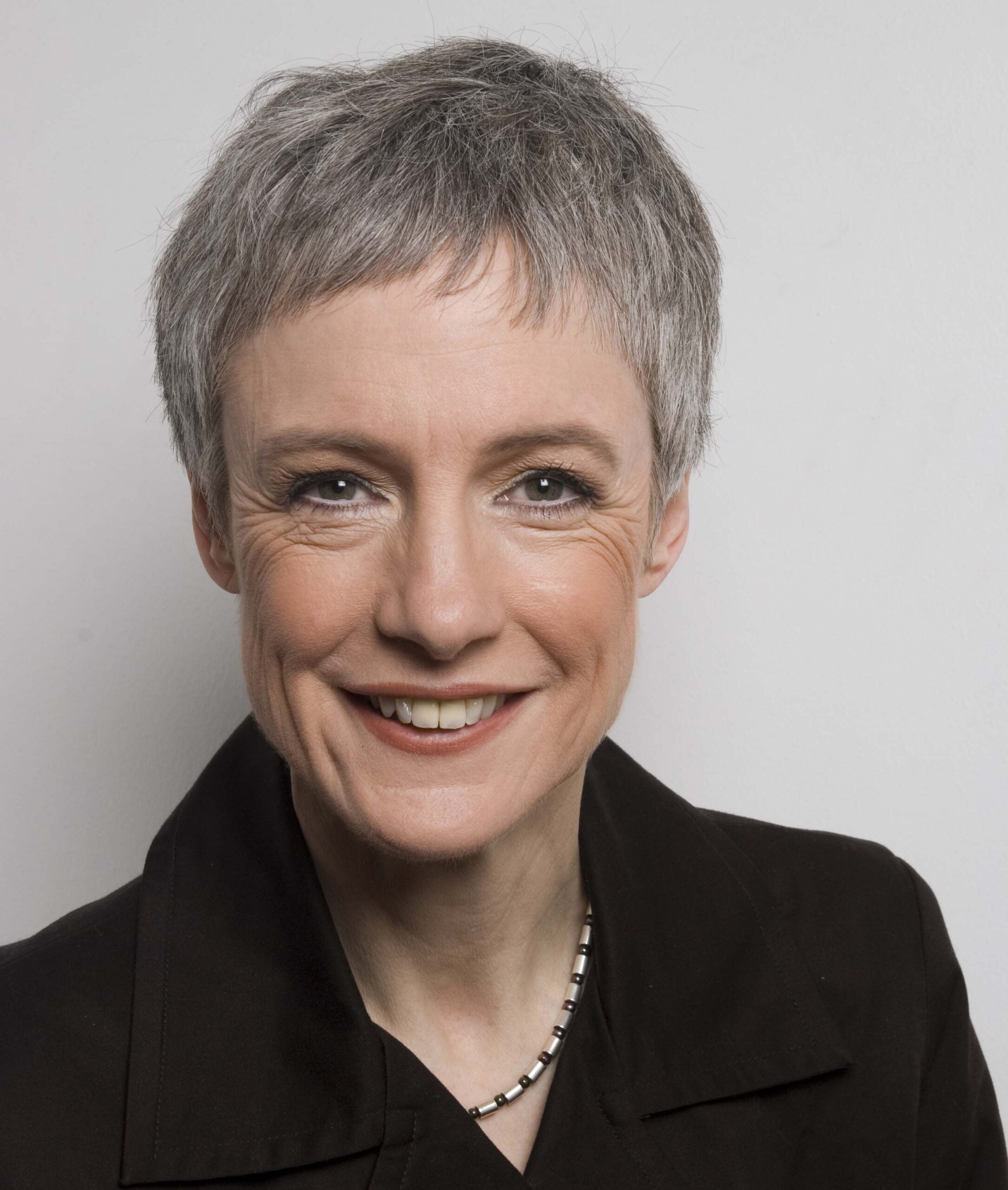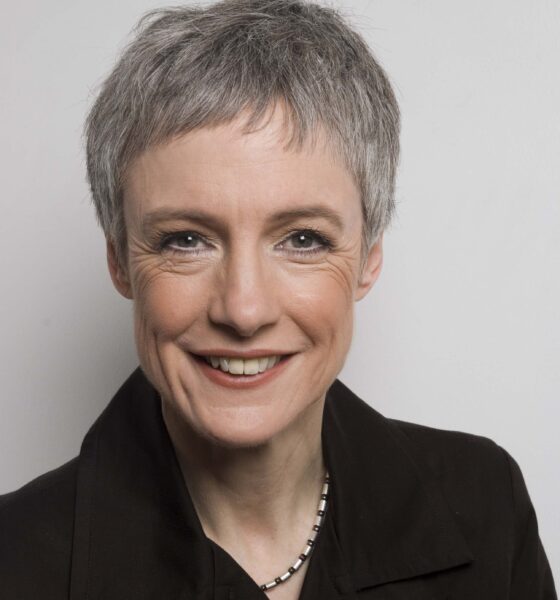

Features
Understanding how your savings and investments are used is integral to sustainability
Penny Shepherd, chief executive of the UK Sustainable Investment and Finance Association (UKSIF), spoke with Alex Blackburne about National Ethical Investment Week, the Green Investment Bank and encouraging individuals and businesses to think more sustainably about their finances.
Now into its fifth year, National Ethical Investment Week (NEIW) is arguably the sustainable investment industry’s most important event. Fronted by UKSIF in collaboration with The Co-operative, Ecclesiastical and CCLA, it’s a chance to create real discussion about the green and ethical finance and investment options on the market, and get the notion out to a wider audience.
Penny Shepherd is one the sector’s most recognisable names, having been chief executive of UKSIF since 2005. As executive director between 1997 and 2001, she helped bring socially responsible investment to the fore. UKSIF’s membership tripled during these four years and Shepherd was awarded an MBE in 2000 for “services to sustainable economic development and socially responsible investment”.
Twelve years on, she’s still as passionate about green and ethical investing as she was from day one, and recently outlined some of her thoughts to Blue & Green Tomorrow.
Another year; another National Ethical Investment Week. What has been different about it this year, though?
It has grown and deepened each year. The thing we’re particularly enthusiastic about this year is the involvement of church groups. They’ve really got behind the week brilliantly. Our model for success is Fairtrade Fortnight and we’re very conscious of the degree to which church groups were absolutely pivotal to the success of that. We’re seeing them doing things up and down the country.
NEIW is a wake-up call for people to understand more about how their savings and investments have an impact on the world, and understand the options that are available to them
It’s very important to have a dedicated week in addition to communicating throughout the year because it’s about all of us raising awareness at the same time. We can have much, much more impact than just communicating during the week. It’s about having critical mass.
Why did you choose to base NEIW on Fairtrade Fortnight?
At Fairtrade Fortnight, there are lots of people up and down the country undertaking events and activities at the same time – everything from running events through to mentioning it to a friend over coffee. But because that is then backed up by a higher concentration of media coverage during the week, people are more likely to hear it from multiple places, and that means that it’s more likely to have an impact.
What effect has NEIW had on the ethical investment industry in terms of interest?
We’ve seen both the number of events growing over the last few years, and also the number of financial advisers involved. Last year, there were 50 events taking place up and down the country which was a 21% increase compared to 2009, and those events took place at 18 locations. Three hundred and fifty financial advisers were involved last year in some way, and that was a 40% increase from 2009.
Religious groups were particularly targeted this year. Just how important are they in spreading awareness of ethical investment?
Very, because as with Fairtrade Fortnight, they’re a group that reaches out into their communities and can spread the word as to what is possible. And really, what we’re trying to achieve with NEIW is two things; dispelling the common myths that are still out there, and therefore to help people get better informed about modern green and ethical investment, but also, after the financial crisis, I think there’s a general recognition that we all need to understand better how our savings and investments are used, and not just leave that to the professionals.
It can be very easy to put that off, and so NEIW is a wake-up call for people to understand more about how their savings and investments have an impact on the world, and understand the options that are available to them.
In order to grow the ethical investment sector, do you think it’s just a case of presenting investors with the ethical, sustainable or responsible option?
One of the key things that we would say is that green and ethical investment has grown and developed over the last 25 years and there are a range of ways and motivations for doing it – everything from responsible ownership through to the traditional negative screening. And an increasing range of options are deliberately tailored to have social or environmental impacts. For example, things like investing in community wind farms where there are a number of options available at the moment.
I suppose part of what we’re communicating is that it makes sense to understand the area better and to consider dipping your toe in the water. There can be a range of motivations, which includes a desire to make money as well as a desire to make a difference in the world.
There’s also a strong case for simply outlining to oblivious investors what it is that their money is going towards. Do you think this is a wise step to take?
Yes, but you need to also say that there are then a range of things that you can do about that, particularly with savings, investments and bank accounts. Move Your Money says that over half a million people have already switched bank accounts from the major banks to ethical alternatives, but what’s also true is that in the last year, we’ve seen the shareholder spring. And so it’s also about investing with fund managers that are using their powers as owners to improve corporate behaviour, as well as making decisions about whether you want to change the investment selected.
Part of what we’re communicating is that it makes sense to understand the area better and to consider dipping your toe in the water
What’s stopping ethical investment from truly becoming mainstream?
I think that it’s a number of things. One thing is that there are still a lot of misperceptions – people think it’s all or nothing and are often concerned with performance. Another is that green and ethical investment only means the traditional funds, but equally, I think there are some challenges about mainstream fund managers communicating what they’re doing, so for example, many fund managers are now signed up to the Principles for Responsible Investment, but that isn’t always well communicated to the retail market in particular.
Socially responsible investment teams at Henderson and Aviva were both closed down in the last 12 months. What impact do these closures have on the industry?
What we’re seeing at the moment is wider restructuring taking place within the investment management sector. And it isn’t surprising that there is some impact on sustainable and responsible investment from that. But in fact, if you look at both Henderson and Aviva, when the team that was formerly at Henderson moved over to WHEB, Henderson didn’t close its SRI funds; it just shifted to using external research. In essence, those funds are still available in the market; they’re just managed externally rather than internally. And then if you look at what happened within Aviva Investors; they moved away from managing equities in London to managing fixed-income, so the key feature of the Sustainable Futures Fund is that they were by-and-large equity funds, so they no longer fitted with the Aviva Investors strategy, so it wasn’t surprising that it made sense for them to find a new home.
Meanwhile, Aviva Investors strengthen their institutional commitment to responsible investment by promoting Steve Waygood to chief responsible investment officer. And if you look at who has probably been one of the most vocal investment industry leaders on the subject of sustainability and corporate responsibility over the last few months, then it’s been Paul Abberley from Aviva Investors. I certainly don’t see those developments as weakening sustainable and responsible investment; really quite the reverse.
You were part of the advisory group for the Green Investment Bank, which this week received state aid approval from the European Commission. What was the group’s role?
We advised the secretary of state on the early stages of creation of the bank. For example, issues like reviewing of the state aid application. What we weren’t responsible for was individual investment decisions; and quite rightly so.
The key point that the advisory group made to the secretary of state was that it was important to make a rapid decision, because the climate change imperative meant that the bank needed to be up and running and making effective investments as soon as possible.
The advisory group ran up until when the board of the Green Investment Bank was appointed. So when it was announced that Robert Smith had been appointed as chair, it was actually announced at the same time that the advisory group had been disbanded because basically our job has been done. In fact, last week they announced the non-executive directors of the bank, and one of those was Tessa Tennant, who is a former UKSIF chair and very much a pioneer in this area, so that’s very good news.
The primary purpose of the Green Investment Bank is to speed the allocation of capital into green infrastructure
What do you think the main positives of the Green Investment Bank are?
One thing that UKSIF is very pleased about was the strategy of doing smaller investments through placing mandates with specialist fund managers, and what we’re very pleased about is of the four mandates that have been placed so far, three of them have been placed with UKSIF members. That’s completely independent to my role on the advisory group, I should say, but the non-domestic energy efficiency mandates have both been placed with UKSIF members, with Sustainable Development Capital and Equitix, and then one of the earlier waste management mandates was placed with the Foresight Group.
What are your thoughts on the location of the bank? Many commentators were disappointed that Edinburgh – an established financial hub – was chosen, rather than a town or city that perhaps wasn’t as thriving economically.
Our concern was particularly about the speed of making a decision, and I think that we were happy that the decision was not unduly delayed. Edinburgh is a one of the UK’s leading financial centres, but there was a very long list of towns and cities that applied to be the host.
The primary purpose of the Green Investment Bank is to speed the allocation of capital into green infrastructure. In order to do that, it needs access to a deep pool of people skills. And so actually, one of the criteria that was used in assessing location was therefore the potential specialist employee base available. But the other thing to say is that actually, the number of people directly employed by the GIB is relatively small. It’s not a number that’s going to make a material difference to the economic development of any area.
Long-term, its aim is to accelerate the financing of green infrastructure, but it acts to finance green infrastructure up and down the country, so the job creation impact is on the projects in which it invests, rather than the number of people who are working for the GIB. The GIB seeks to invest in the best projects across the UK – there is no suggestion that as a result of its location, it will be more likely to invest in Scotland compared to Wales or England.
There was certainly a school of thought that would have liked it to have been based in London, and certainly some of the dealmakers will be in London. But I think the underlying issue is that the decision has now been made and therefore the GIB is free to move on and to achieve its aims and the next critical milestone is the state aid application. The most significant outstanding issue from our point of view is the question of borrowing powers.
Finally, what would you say to individuals, businesses and policymakers in order to encourage them to act more ethically, sustainably and responsibly with their finances?
The world is changing and how money is made in the future will be different, and we are already seeing the evidence that taking into account environmental and social factors should help you both to make money in the future and also make a difference in the world.
 National Ethical Investment Week runs until Saturday, October 20. Join the movement on Twitter using the hashtag #NEIW12.
National Ethical Investment Week runs until Saturday, October 20. Join the movement on Twitter using the hashtag #NEIW12.
If you would like to know more about the sector and receive copies of our most recent reports, you can sign up to our weekly newsletter here.
Further reading:
The dynamic future of sustainable investment
Green Investment Bank given go-ahead by EU
£11 billion invested ethically in the UK: infographic analysis
Ethical investment demand rises as individuals turn to sustainability
Ethical investors are not tree huggers, but air breathers (and responsible global citizens)


 Environment12 months ago
Environment12 months agoAre Polymer Banknotes: an Eco-Friendly Trend or a Groundswell?

 Features11 months ago
Features11 months agoEco-Friendly Cryptocurrencies: Sustainable Investment Choices

 Features12 months ago
Features12 months agoEco-Friendly Crypto Traders Must Find the Right Exchange

 Energy11 months ago
Energy11 months agoThe Growing Role of Solar Panels in Ireland’s Energy Future





























